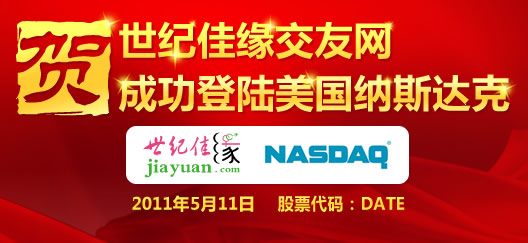YUM Brands (NYSE: YUM) has come out with details of its offer for Little Sheep (HKEx: 968), China’s leading hot pot restaurant chain, and the deal does indeed look yummy for investors, with the US owner of the KFC and Pizza Hut brands offering a 30 percent premium to Little Sheep’s value before the deal was announced. (company announcement) But shareholder reaction to the offer tells the real story behind this one, namely that there’s a huge degree of skepticism that China’s regulator will sign off on this one, even though nearly all observers agree there’s absolutely no grounds to kill this deal on anti-trust concerns. Little Sheep shares, after being halted at HK$5 pending the announcement, jumped to HK$6.15 after terms were given — a more than 20 percent jump but still well below the HK$6.50 offer price. I’ve seen lots of deals like this before and in most cases the stock jumps to just below the offer price when a buy-out is announced. So the fact that such a large gap remains here clearly speaks volumes. China has already shown an increasing willingness to kill deals that see foreign companies swallow up its emerging brands, as evidenced by its veto of Coke’s (NYSE: KU) attempt to buy leading juice maker Huiyuan (HKEx: 1886) two years ago. I’d really like to believe the regulator will let this latest deal pass, but I’m also increasingly skeptical that China will let another of its “famous brands” be swallowed up by an international player like YUM.
namely that there’s a huge degree of skepticism that China’s regulator will sign off on this one, even though nearly all observers agree there’s absolutely no grounds to kill this deal on anti-trust concerns. Little Sheep shares, after being halted at HK$5 pending the announcement, jumped to HK$6.15 after terms were given — a more than 20 percent jump but still well below the HK$6.50 offer price. I’ve seen lots of deals like this before and in most cases the stock jumps to just below the offer price when a buy-out is announced. So the fact that such a large gap remains here clearly speaks volumes. China has already shown an increasing willingness to kill deals that see foreign companies swallow up its emerging brands, as evidenced by its veto of Coke’s (NYSE: KU) attempt to buy leading juice maker Huiyuan (HKEx: 1886) two years ago. I’d really like to believe the regulator will let this latest deal pass, but I’m also increasingly skeptical that China will let another of its “famous brands” be swallowed up by an international player like YUM.
Bottom line: Momentum is swinging against YUM’s proposed acquisition of Little Sheep, which could once again highlight China’s bias against M&A of its major brands by foreign firms.
百胜<YUM.N>已宣布并购小肥羊<0968.HK>计划细节,此宗交易对投资者来说颇具吸引力,百胜出价较交易宣布前小肥羊股价溢价30%。但外界高度怀疑此宗交易能否获得中国监管部门批准,尽管多数观察人士认为不能以反垄断为由推翻此宗交易。小肥羊股价已跳涨至6.15港元左右,但仍远低於百胜收购出价。我以前看过许多类似交易,多数情况下宣布并购消息後,股价会涨至仅略低於收购价的水准。而小肥羊当前股价表现足够说明问题。从两年前中国否决可口可乐<KO.N>收购汇源果汁<1886.HK>,就可以看出中国越来越不愿让外国公司并购中国名牌企业。我真心希望监管部门能批准百胜并购小肥羊,但还是持怀疑态度。
一句话:百胜收购小肥羊阻力大,可能再次印证中国不愿意外国公司收购中国名牌企业。
Related postings 相关文章:
◙ YUM and Little Sheep – A Sweet Match If China Approves 美国百胜购小肥羊:甜蜜姻缘还靠中国政府成全
◙ McDonald’s Revs Up for China Drive-Thru 麦当劳寄望“得来速”汽车餐厅拓宽中国市场
◙ Starbucks China Expansion: New Brew Needed to Serve Up Success

 We’re finally getting a bit more clarity on e-commerce company 360Buy, and why investors like Wal-Mart (NYSE: WMT), Russia’s Digital Sky Technologies and Baidu (Nasdaq: BIDU) chief Robin Li all recently plowed $1.5 billion into the company, leading its Chairman Liu Qiangdong to proclaim his baby was worth $10 billion. So, let’s backtrack a bit and do a quick analysis of this one. At a media briefing in Beijing, Liu told the world his company hopes to turn profitable next year, and could make an IPO worth $2 billion or more not long after that. (
We’re finally getting a bit more clarity on e-commerce company 360Buy, and why investors like Wal-Mart (NYSE: WMT), Russia’s Digital Sky Technologies and Baidu (Nasdaq: BIDU) chief Robin Li all recently plowed $1.5 billion into the company, leading its Chairman Liu Qiangdong to proclaim his baby was worth $10 billion. So, let’s backtrack a bit and do a quick analysis of this one. At a media briefing in Beijing, Liu told the world his company hopes to turn profitable next year, and could make an IPO worth $2 billion or more not long after that. ( fast growing space. Yihaodian’s numbers do look impressive: after just three years in business, the company expects to notch 800 million yuan in revenue this year and keep its top line growing at 100 percent or more over the next two years. I expect that Wal-Mart is positioning itself for a potential buy-out if Yihaodian continues to perform well. Given Wal-Mart’s already sizable presence in China, the connections and expertise it has to offer could provide a potent combination for Yihaodian, creating a major new player on the China e-commerce scene.
fast growing space. Yihaodian’s numbers do look impressive: after just three years in business, the company expects to notch 800 million yuan in revenue this year and keep its top line growing at 100 percent or more over the next two years. I expect that Wal-Mart is positioning itself for a potential buy-out if Yihaodian continues to perform well. Given Wal-Mart’s already sizable presence in China, the connections and expertise it has to offer could provide a potent combination for Yihaodian, creating a major new player on the China e-commerce scene. After soaring 34 percent on its trading debut late last week (
After soaring 34 percent on its trading debut late last week ( It’s time to take a break from the antics of Alibaba and Yahoo (Nasdaq: YHOO) and look at some of the other interesting companies in the China universe, which brings me to software outsourcing firm VanceInfo (NYSE: VIT), which has just posted quarterly results and updated annual guidance that look decidedly unimpressive. (
It’s time to take a break from the antics of Alibaba and Yahoo (Nasdaq: YHOO) and look at some of the other interesting companies in the China universe, which brings me to software outsourcing firm VanceInfo (NYSE: VIT), which has just posted quarterly results and updated annual guidance that look decidedly unimpressive. ( libaba statement
libaba statement They should change Baidu’s (Nasdaq: BIDU) name to Botchdu, as this company seems to mess up just about anything outside its core search business. In the latest botchdu for Baidu, the company announced a “reorganization” for its microblogging service, Baidu Talk, launched just last year, that seems to indicate this latest failed product will eventually be quietly retired to oblivion. (
They should change Baidu’s (Nasdaq: BIDU) name to Botchdu, as this company seems to mess up just about anything outside its core search business. In the latest botchdu for Baidu, the company announced a “reorganization” for its microblogging service, Baidu Talk, launched just last year, that seems to indicate this latest failed product will eventually be quietly retired to oblivion. ( It seems that US investors have finally woken up from their months of irrational exuberance, to borrow the phrase from Alan Greenspan, towards China Internet IPOs. The unraveling of a match made in heaven — at least for Chinese Internet firms — was on display in the weak trading debut for Jiayuan (Nasdaq: DATE), whose shares limped out of the gate on the Nasdaq with a small gain, but quickly faltered at the investor altar and ended their first day down 4 percent from their IPO price. (
It seems that US investors have finally woken up from their months of irrational exuberance, to borrow the phrase from Alan Greenspan, towards China Internet IPOs. The unraveling of a match made in heaven — at least for Chinese Internet firms — was on display in the weak trading debut for Jiayuan (Nasdaq: DATE), whose shares limped out of the gate on the Nasdaq with a small gain, but quickly faltered at the investor altar and ended their first day down 4 percent from their IPO price. (